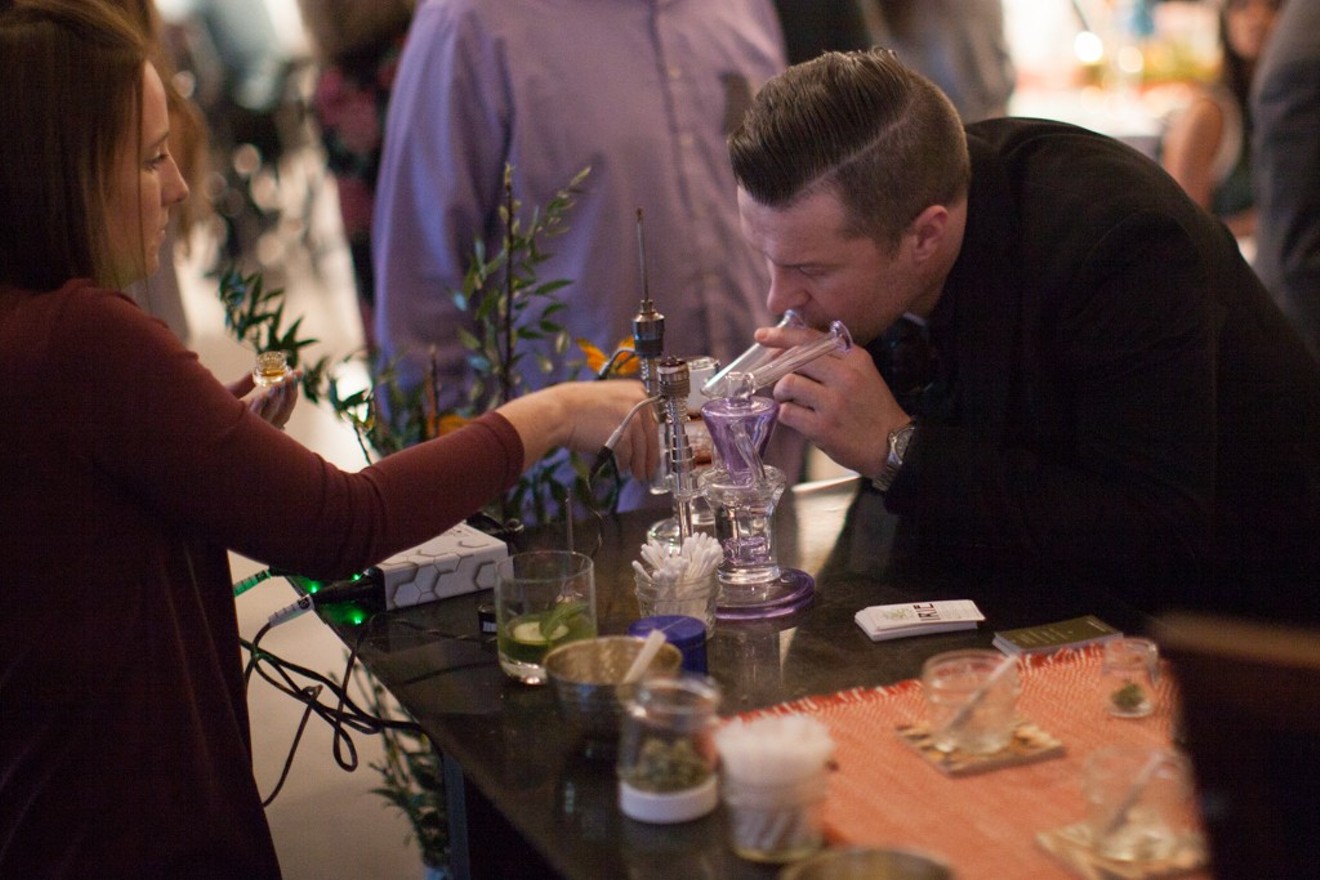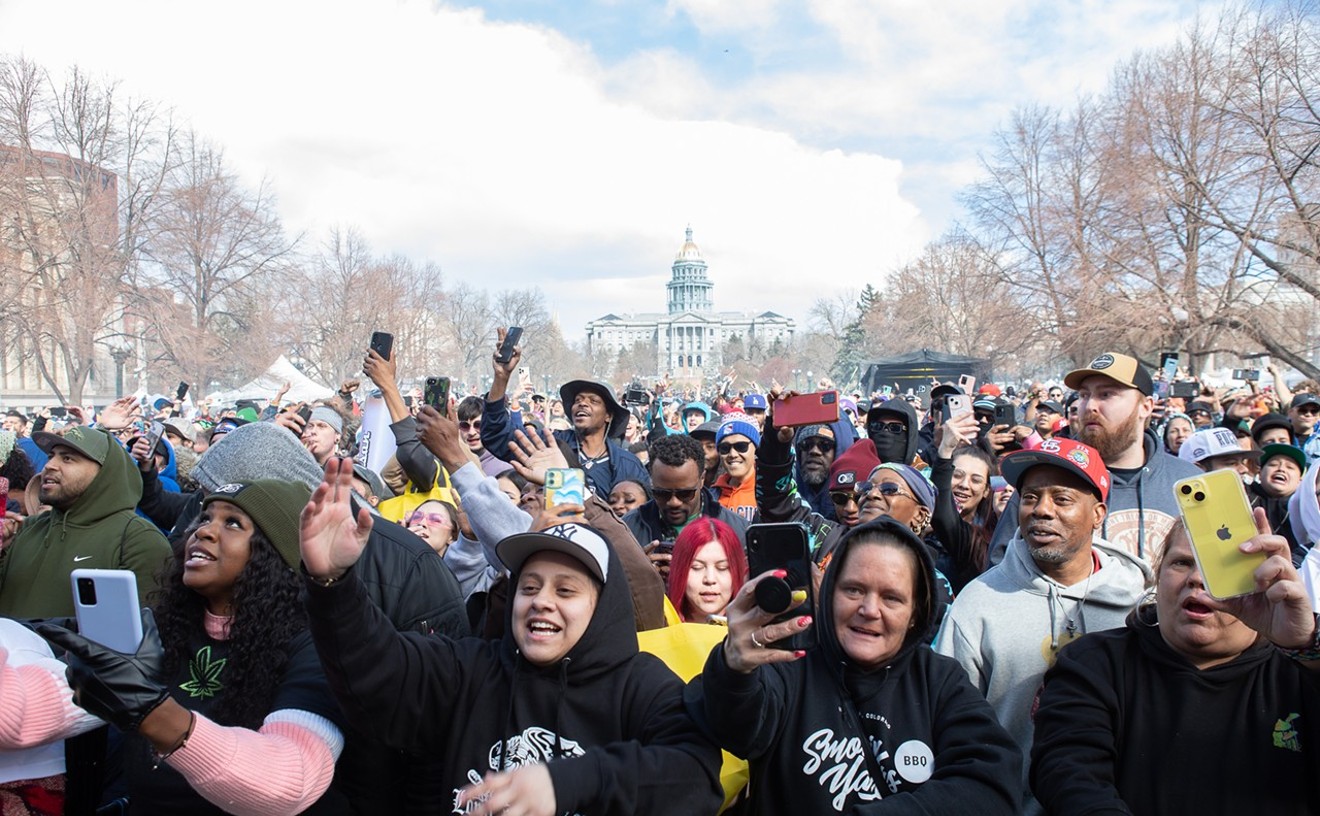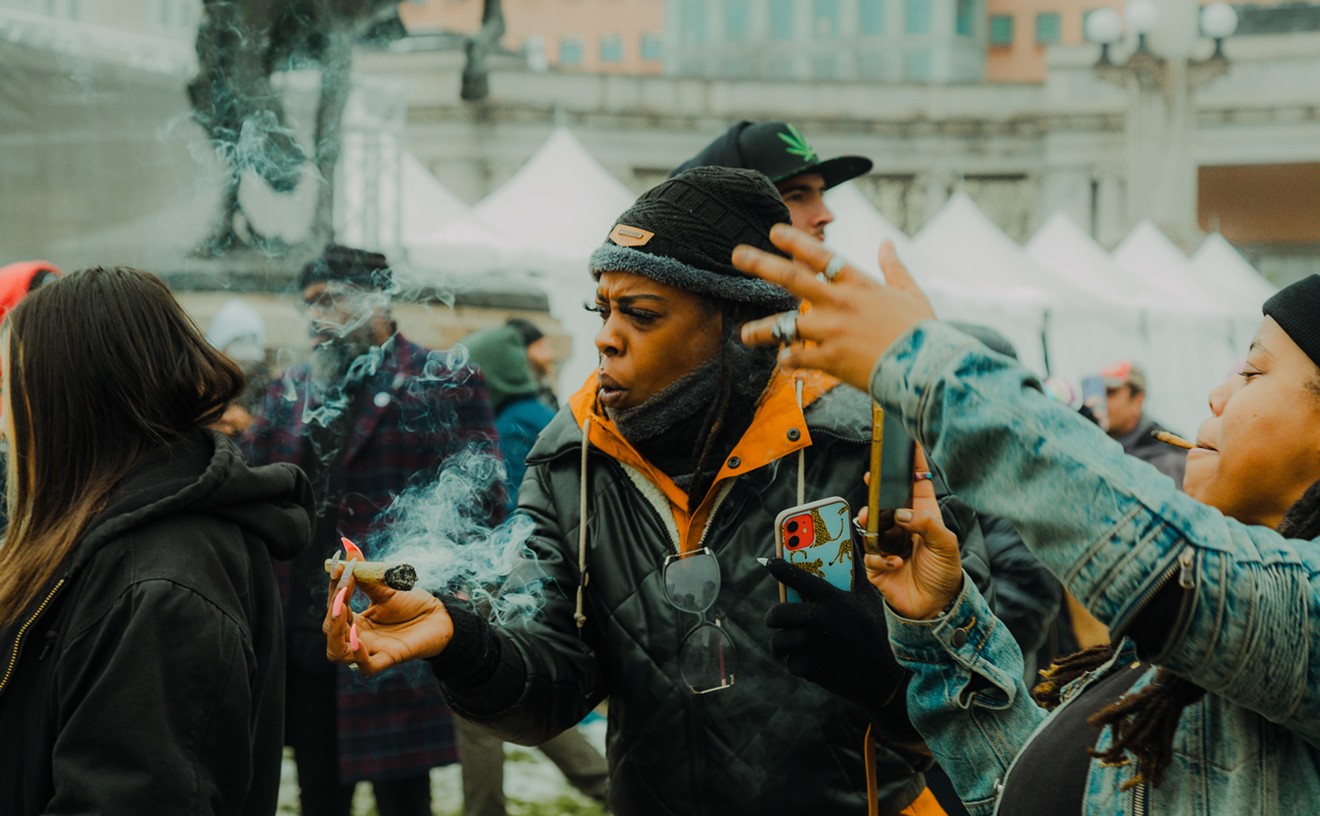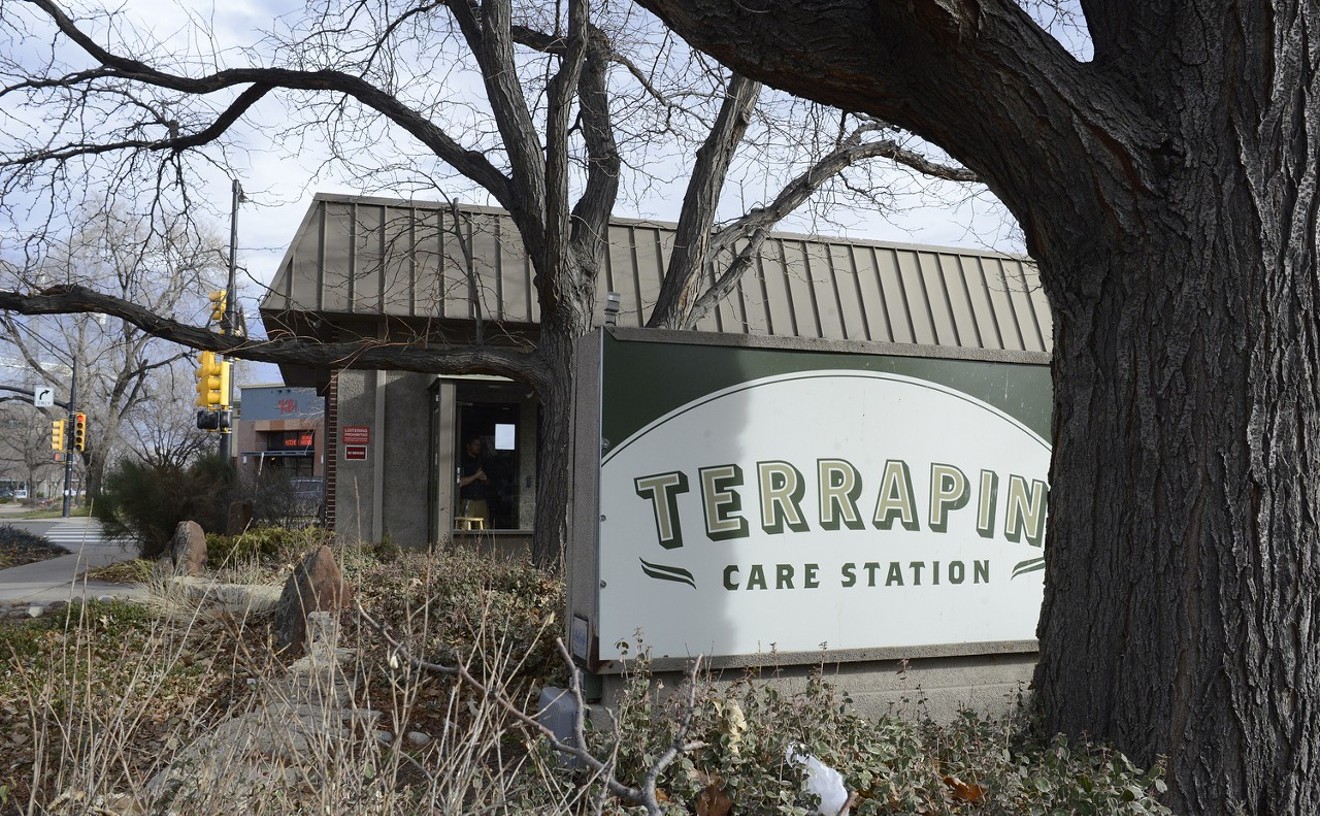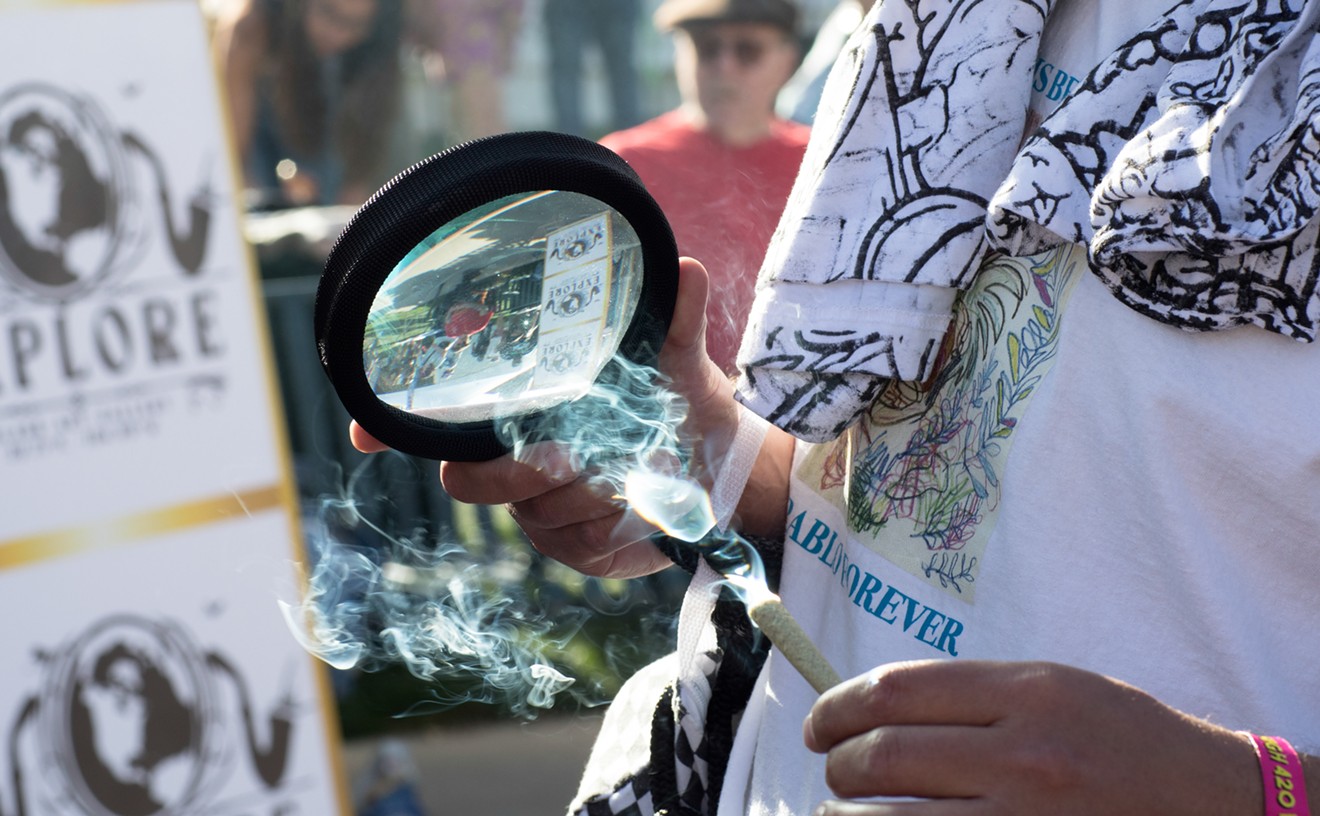Much of the rationale for the lack of CCE spots focused on two factors: strict location restrictions and a shortage of profitable business plans. Current regulations require that any potential CCE business be at least 1,000 feet away from any school, drug or alcohol treatment facility, or city-owned park or recreation center. According to the Denver Department of Excise and Licenses, around 325 art and yoga studios, tattoo parlors, game lounges, coffee shops and other operations could fit within those parameters. But the obstacles don't stop there.
Because any business with a liquor license is barred from applying for a social consumption permit, bars and most restaurants are instantly excluded. That exclusion has also prevented art galleries, yoga studies and hair saloons from applying, as selling alcohol at special events is still considered far more profitable, business reps told the gathering. And according to Colorado Department of Revenue director Michael Hartman, the state regulation banning simultaneous cannabis and liquor licenses at a single location won't be changing any time soon. "Right now, the business model associated with social consumption is challenging," he said. "We believe that because marijuana is illegal at a federal level, it makes a lot of sense to go slow."
Other limitations on CCE businesses include the Colorado Clean Indoor Air Act, which bars smoking indoors at public places, as well as a ban on selling cannabis products. "Why would anyone want to do this?" Wanda James asked. "It just doesn't make financial sense on any level whatsoever."
James, an entrepreneur, political activist and owner of Simply Pure dispensary in the Highland neighborhood, also pointed out that a majority of the areas eligible for CCE licenses fall in low-income neighborhoods in northeast Denver that are already loaded with cannabis dispensaries and cultivations, such as Elyria Swansea, Globeville and Northeast Park Hill. "In five years, we're going to be yelled at by the people in those neighborhoods," she warned.

The Coffee Joint is currently Denver's only business with a social consumption license.
Jacqueline Collins
Sovine told the group she cannot move forward with her business plan until she changes her building's occupancy designation with the city. To do that, she needs more capital, but she cannot persuade potential investors to jump in until she knows she'll get a CCE license. All that stands in the way? Eighteen feet.
Third Way Center leadership has written a letter of support, Sovine said, but she's still waiting to hear back from the Department of Excise and Licenses on her request for a location exemption. "In order to be able to get the investment that I need — people are interested in investing in my company — they just aren't going to do it if we're going to be denied the license. It's a chicken-and-egg scenario," she continued. "They're willing to invest prior to the license if they know we're not going to get denied on a location setback."
The location restrictions had been debated by the city's Social Consumption Advisory Committee, which held meetings throughout 2017 to strategize the implementation of Initiative 300, a 2016 voter-approved measure allowing private pot consumption in licensed businesses. The original measure didn't have such strict location rules or disallow liquor licensees from applying; the DOR clarified its stance on that after voters approved I-300.
Sovine, an early I-300 advocate, thinks the initial intentions — to provide a cheaper way for entrepreneurs to enter the legal cannabis industry, and to give people a place to consume cannabis — have been changed.
"Based off the additional setback requirements that were added in the rule, we were very concerned. It's like finding a needle in a haystack," she explained. "It's $1,000 to apply and $1,000 to renew for this. Compared to other cannabis businesses, that's a drop in the hat. What's expensive is going through the zone use and the occupancy. This is so new, so the mold hasn't been created yet."
Despite her location issues, Sovine believes city officials have been open to finding a solution. That sentiment was shared by Denver City Councilwoman Kendra Black, chair of the Social Consumption Area Task Force. "We might have to add some more meetings to this, just FYI," she told members.
Although recreational cannabis is legal in Colorado, open and public consumption is still outlawed. A handful of private clubs and events throughout the state have allowed social consumption with varied success, and a bill that would allow dispensaries to open cannabis tasting rooms passed the Colorado Legislature on May 3, but it has yet to be signed by Governor John Hickenlooper. If signed, the new law would allow localities such as Denver to mold regulations to fit with their own ordinances, like the CCE program.
Black, who was part of the Social Consumption Advisory Committee in 2017, hopes to figure out how to make a CCE business financially viable before sharing those recommendations with local and state agencies, such as the Department of Revenue and Governor John Hickenlooper's office. The task force is currently scheduled to meet two more times (June 14 and July 12) and is expected to file its recommendations with the full Denver City Council by November 22.

